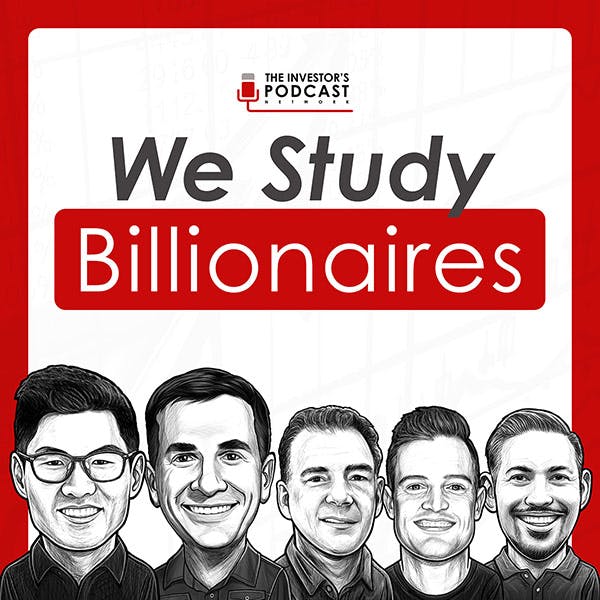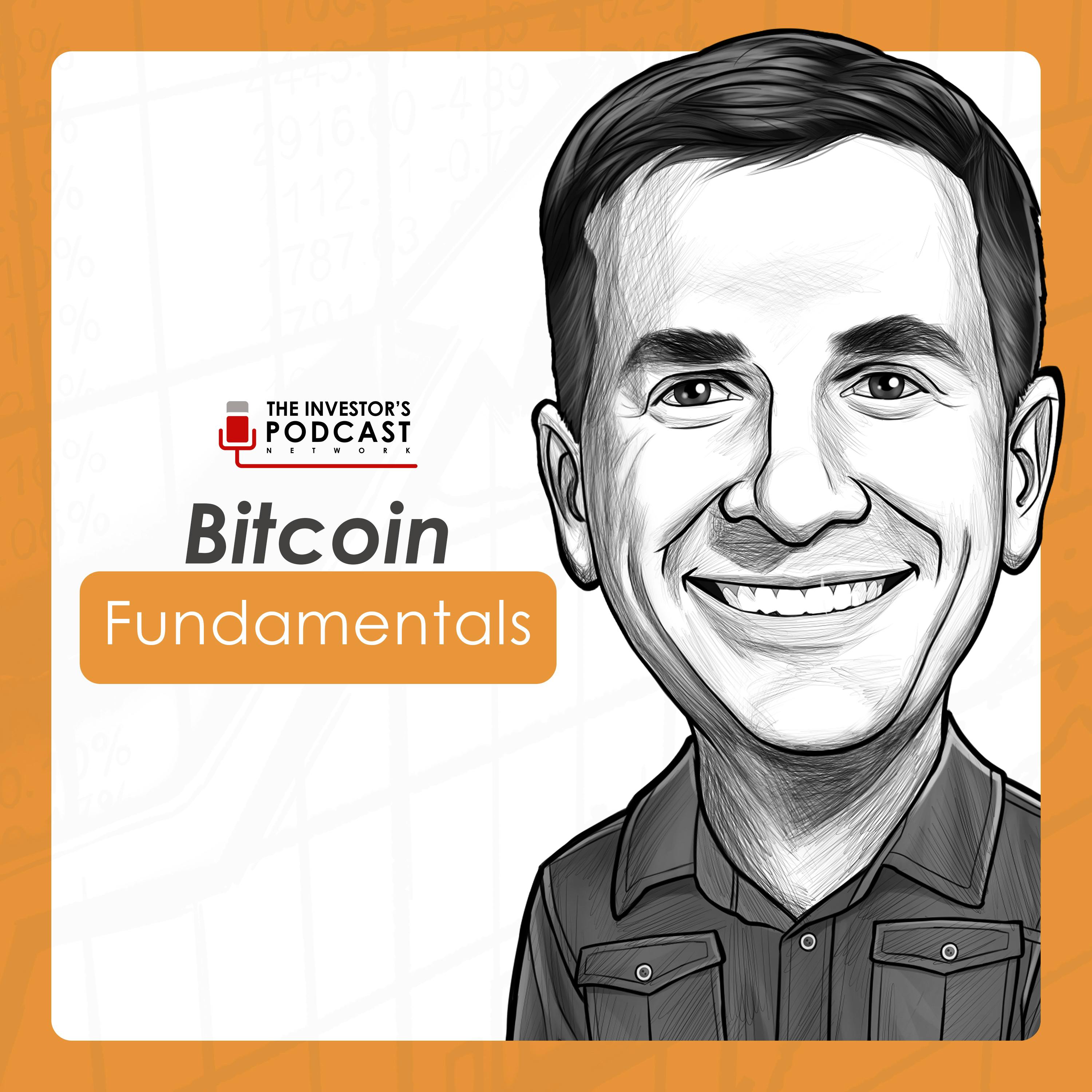
May 26, 2024 • 2hr 23min
RWH045: Real Success w/ Christopher Tsai
We Study Billionaires - The Investor’s Podcast Network

Key Takeaways
- Christopher Tsai's investment philosophy focuses on owning high-quality compounding businesses for the long-term, with a concentrated portfolio of about 21 stocks
- Tsai believes Tesla is misunderstood and remains bullish on the company, seeing it as more than just a car manufacturer but an advanced electronics and software company
- The importance of not interrupting the compounding process unnecessarily is a key principle for Tsai
- Tsai learned from his father's successes and failures, including the value of quality businesses but also the pitfalls of momentum investing
- Having a multifaceted approach to success, balancing career, family, health, and other aspects of life, is crucial according to Tsai's mentor Peter Kaufman
- Tsai no longer invests in China, preferring to focus on U.S. companies with global reach due to concerns about property rights and rule of law
- Charlie Munger's influence on Tsai included the principle that "less activity is better than more activity" in both investing and life
Introduction
In this episode, William Green interviews Christopher Tsai, President and Chief Investment Officer of Tsai Capital. Tsai has beaten the S&P 500 over the past 24 years with his concentrated portfolio of high-quality growth stocks. The conversation covers Tsai's investment philosophy, his views on Tesla and disruptive technologies, lessons learned from his father (a famous momentum investor), and wisdom gained from mentors like Peter Kaufman and Charlie Munger.
Topics Discussed
Tsai's Family Background and Early Influences (4:15)
Christopher Tsai comes from a family with a tumultuous history in China. His grandmother, Ruth, faced numerous challenges:
- Forged her son's (Christopher's father) passport to get him out of China
- Became the first woman to trade on the Shanghai Stock Exchange
- Had property confiscated by communist authorities
- Separated from family for long periods
This background instilled in Tsai the importance of capital preservation and adaptability. He learned valuable lessons about dealing with people from his grandmother, including the idea that "Why be a square table when you can be a round one?"
Gerald Tsai Jr. - America's First Celebrity Fund Manager (18:02)
Christopher's father, Gerald Tsai Jr., became a legendary investor:
- Started at Fidelity in 1952, launching aggressive growth funds
- Left Fidelity in 1965 to start Manhattan Fund
- Known for momentum investing and moving markets
- Later became a successful dealmaker and CEO
While financially successful, Gerald Tsai Jr. had a complicated personal life, including multiple divorces and strained relationships with his children.
Lessons Learned from Father's Successes and Failures (21:38)
Christopher Tsai drew important lessons from observing his father:
- The value of high-quality businesses
- The pitfalls of short-term momentum investing
- The importance of balancing financial success with personal relationships
Tsai developed a different approach to investing, focusing on long-term holdings of quality companies rather than frequent trading.
Tesla as a Misunderstood Investment Opportunity (39:51)
Tsai views Tesla as his highest conviction idea and largest position:
- Sees Tesla as more than just a car company - an advanced electronics and software manufacturer
- Believes Tesla has significant cost advantages over competitors
- Compares the skepticism around Tesla to early doubts about the automobile replacing horse-drawn carriages
"Tesla is definitely one of the most misunderstood companies that I've seen in my 25 years or so of managing money for others." - Christopher Tsai
Understanding Disruptive Technologies (46:32)
Tsai discusses why humans often underestimate the impact of disruptive technologies:
- Our brains are wired to think linearly, not exponentially
- Disruptive technologies often follow an S-curve adoption pattern
- Historical examples include the printing press, steam engine, and automobiles
The Importance of Not Interrupting Compounding (57:31)
A key principle for Tsai is avoiding unnecessary interruption of the compounding process:
- Selling great compounding businesses too early is a major mistake
- Maintaining a diversified portfolio (21 holdings) helps resist the urge to sell during volatility
- Focuses on business fundamentals rather than short-term stock price movements
"The vast majority of investors interrupt the compounding process unnecessarily." - Christopher Tsai
Investment Approach and Key Holdings (1:07:08)
Tsai's investment strategy focuses on:
- High-quality companies growing sales and earnings at above-average rates
- Businesses with high returns on capital and ability to reinvest in large addressable markets
- Top holdings include Alphabet, Amazon, Apple, Costco, and Tesla
- Aligning with long-term trends like cloud computing and the shift to cashless payments (Visa, Mastercard)
Evolution of Views on Diversification (1:14:21)
Tsai has adjusted his approach to diversification over time:
- Previously held a more concentrated portfolio of about 12 stocks
- Now holds about 21 positions to better manage volatility and take advantage of opportunities
- Used market selloffs to add high-quality companies at attractive valuations
Personal Habits for Focus and Productivity (1:16:36)
Tsai emphasizes three key habits for maintaining peace of mind and productivity:
- Exercise
- Meditation
- Good sleep
He also stresses the importance of outsourcing non-core business functions to maintain focus on investing.
Early Start in Money Management (1:43:01)
Tsai began managing money at a young age:
- Convinced a restaurant owner to give him $400,000 to invest at age 16
- Managed money for five clients while in college
- Launched Tsai Capital after briefly working at Bear Stearns
Peter Kaufman's Influence and the "One Ladder" Concept (1:57:07)
Tsai discusses the influence of mentor Peter Kaufman and his "One Ladder" concept for a successful life:
- Seven steps: Health, Family/Friends, Career, Community, Spirituality, Hobbies
- Health is most important as it's multiplicative - if health is zero, everything else becomes zero
- Tsai aims to balance these aspects in his own life
Decision Not to Invest in China (2:06:48)
Tsai explains why he no longer invests in China:
- Influenced by Peter Kaufman's views on necessary conditions for success (education, property rights, rule of law)
- Concerns about lack of respect for intellectual property in China
- Prefers to focus on U.S. companies with global reach
Charlie Munger's Influence (2:10:41)
Tsai shares key lessons learned from Charlie Munger:
- "Less activity is better than more activity" in both investing and life
- The importance of simple pleasures and consistency
- Munger's kindness and graciousness in their interactions
"He treated me as a separate individual and asked me what my approach was to investing, what I'm interested in, the companies that I own in the portfolio. He didn't talk about my father." - Christopher Tsai on Charlie Munger
Conclusion
Christopher Tsai's approach to investing and life reflects a synthesis of lessons learned from his family background, mentors, and personal experiences. His focus on high-quality compounding businesses, resistance to unnecessary trading, and emphasis on a multifaceted approach to success have contributed to his outperformance over more than two decades. Tsai's insights on disruptive technologies, the importance of not interrupting compounding, and maintaining balance in life offer valuable lessons for investors and individuals seeking long-term success.









